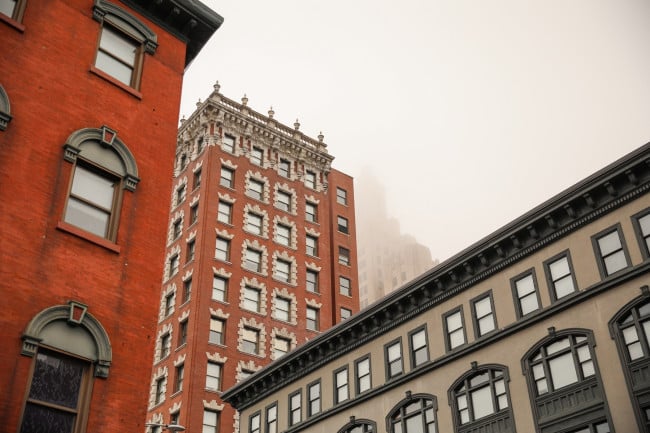An increase in NYC sponsor co-ops for sale is likely a result of Covid deaths

This one-bedroom sponsor co-op at 741 West End Ave., #5E, on the Upper West Side is listed at $545,000.
New York City co-op buyers who want to skip the board approval process have more sponsor co-op listings to choose from these days. Online searches for sponsor co-ops, which are exempt from co-op board approval, currently bring up more than 300 listings, up about 50 percent since before the pandemic, Brick Underground finds.
This segment of the market was tracked weekly prior to the pandemic for Brick's sponsor co-op of the week column. Searches were done on StreetEasy. (If you want to do your own search, under "apartment type" in the advanced search options, click on co-op and at the bottom of the page, under "sale type," click "sponsor sale.")
This increase doesn't represent a sizable sector of the market—it's less than 2 percent of total listings on the market in the last quarter for Manhattan, Brooklyn, and Queens, and roughly 5 percent of all co-op listings. The uptick, coinciding with the pandemic, is likely attributable to some Covid deaths.
Sponsor co-ops are typically rentals in buildings that were converted to co-ops in the 1970s or 1980s. Occupants who didn't buy were allowed to continue renting in the building. If the residents were in their 30s or 40s back then, they are now in their 70s and 80s.
“Sponsor units generally become available as people pass away," says Scott Harris, an agent at Brown Harris Stevens.
Elderly renters leaving apartments empty
It is an inescapable fact: New Yorkers have died during the pandemic. Melissa Leifer, a salesperson at Keller Williams NYC, says she is seeing more sponsor units for sale and that's to be expected if the elderly move out of state, move into assisted living facilities, or pass away.
Harris says whether Covid-related or not, New York will "definitely see more sponsor units come to market on an annual basis."
Sponsors, like everyone else, are having to deal with the realities of the rental market. Many tenants decided to leave New York at the beginning of the pandemic and the rental market has been much less competitive over the past 12 months, forcing landlords to offer substantial sweeteners to entice tenants to sign leases.
Liefer says sponsors are "more inclined to sell their units because they can take the money and reinvest it into other projects where they can yield a higher return."
Changes to the rent laws
Another reason why sponsors may be more inclined to sell is because of changes to the rent laws two years ago. Most rental apartments in co-ops are rent stabilized and it's now much harder for developers to cycle these apartments out of the program and increase the rent.
Stephen Kliegerman, head of new development at Brown Harris Stevens, says sponsors may be choosing to sell their remaining inventory as they become empty "rather than continue to rent them, given they are no longer able to substantially increase rents on these units." He points out the pandemic may have provided an opportunity to do so, as elderly residents passed away or moved out of they city.
The perks of sponsor co-ops
An increase in sponsor co-ops is good news for buyers who might be reluctant to go through the scrutiny of the co-op board interview. The main perk of a sponsor apartment is that you're buying directly from the original developer or owner of the entire building and your purchase doesn't need board approval. This opens doors to ownership for buyers who might otherwise be rejected, like freelancers and consultants with contract work, or entrepreneurs who might be cash poor at the time of purchase.
Along with avoiding the co-op board interview there are other distinctive features to sponsor co-ops: The apartments will typically have been rented out for many years and are often newly renovated for sale. They also typically require a down payment of only 10 percent, versus the 20 to 25 percent that most co-ops demand. The trade-off here is that you pay a bit more than you would for a regular co-op, but less than you would for a condo.
Financial reasons to buy now
There are other incentives to buying a co-op now: Mortgage rates remain near historic lows and the Federal Housing Finance Agency recently raised the threshold for jumbo loans to $822,375, up from $765,600. A higher limit for conforming loans means borrowers that may not have met stricter jumbo financing guidelines may now fit Fannie Mae and Freddie Mac lending guidelines.
You Might Also Like




























